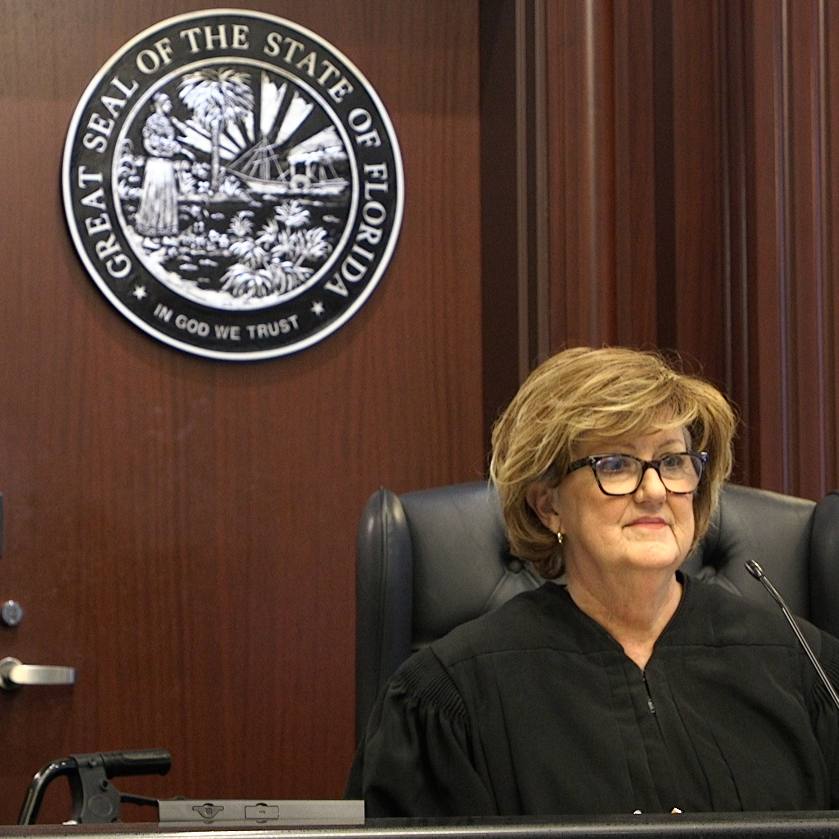 My battle with cancer started a few years ago when I developed prostate cancer. My local doctor recommended a Radical Prostatectomy. He painstakingly spared all my nerves. I had no residual incontinence or impotence. PSA was NIL and has never returned.
My battle with cancer started a few years ago when I developed prostate cancer. My local doctor recommended a Radical Prostatectomy. He painstakingly spared all my nerves. I had no residual incontinence or impotence. PSA was NIL and has never returned.
A few years later I detected a hardening of a testicle. Biopsies were sent out. They returned a finding of a large diffuse 8 cell; stage II 8 - Testicular Cancer- dangerous and fast growing. My doctor sent me to Dr. Harwin, oncologist and founder of Florida Cancer Clinics.
Dr. Harwin treated my brain and central nervous system. He referred me to an oncology radiologist who prescribed radiation of full trunk and specifically the scrotum and remaining testicle. Throughout all chemo and radiation treatments I continued to do what Dr. Harwin directed: "try to lead as normal life as you are able."
I would leave clinic/hospital and do my routines of tennis, golf, working out,
biking, swimming, and travel. I flew out West and skied the Rockies, visited family in
Connecticut and Canada, enjoying the steroid boost to my energy level. After the
complete doses, Dr. Harwin ordered CTs and PETs. The cancer was gone.
I had a couple years free of cancer. Then, one morning I woke up unable to speak
intelligibly. My right side was very clumsy and I fell down the steps several times. In June I went to a local hospital. Their analysis was TIA or a stroke. The meds they gave me did not help. A friend drove me to a Grand Rapids hospital (a much larger facility). A doctor ordered a series of scans. After a weekend in the hospital I was a little better and we agreed that I go home. As I left the hospital, the doctor said, "I do not know what is wrong with you but I can assure you it is not a TIA or stroke ... you would be dead by now."
The next morning, I was much worse, both in speech and movement. I tried calling the doctor’s office to accelerate the MRI appointment, which had been scheduled two months out. They were unable to make an earlier appointment.
My son called the next day and said “pack a small bag, you are going with me, we are headed west.” We arrived at Mayo Clinic, Rochester, MN the day after at about 2:00 pm. Later that night I had been poked, prodded, examined, EKG'd, and scanned. The following a.m. I was greeted by a team of doctors and staff. The scans of the previous night showed a small growth in my left brain. This meant it was either T.M.L or cancer. The head of the hematology department suggested projecting a small device through the skull directly into the growth for biopsy, using radiological guidance. The results came back positive for Recurrent Testicular Lymphoma. I accepted the offer to do chemo therapy at Mayo.
The clinic is fantastic. I saw doctors and staff every day throughout my stays
in the hospital. I spent months doing a routine of 3 - 4 days at Mayo, then home to Michigan for 10 - 14 days. Dr. Solomon was the primary physician and he followed me like a hawk, checking on me frequently and calling periodically when I was back home in Michigan. He spent all the time I needed answering any and all questions. After (June - Oct), he told me my follow-up scans showed no evidence of any cancer. Then he said I was to meet with Dr. Inwards, chief of Transplants at Mayo.
Dr. Inwards explained in detail what an autologous transplant of stem cells
could do for me. He outlined the dangers of strong chemo (Methotrexate) in detail – nausea, possible infections, etc. The stem cell transplant procedure has been shown to significantly preclude the return of cancers in general. There is a critical need for complete sterilization for an estimated month. I opted for this offensive move against my cancer as I was completely exhausted with waiting defensively for the possibility of a return of cancer. I was also given a choice of hospitalization or enrollment in a completely sterile environment. I chose the "Gift of Life," Mayo's transplant house. The House was a great choice. All residents were waiting for or experiencing transplants. It was supportive to be surrounded by others; many of whom were facing a combination of problems. I found it extremely rewarding to share problems and to encourage those coming behind me.
Once again I sailed through the ordeal. No matter how I felt, I walked with my
sterile mask on with my caregiver many miles every day. I know that even though I felt totally exhausted I was not as discomforted as many others. It was gratifying to show others how to get through the transplant by being positive and active.
I hope this story may help others to cope even though fearing the worst. The following thoughts may help others to move forward rather than turn inward. Lose all fear. Start each day with an upbeat attitude. Thank your God for another day. Set your heart to overcome new obstacles.
God Bless to you all in your life’s journey.
Written by: Erik V.







